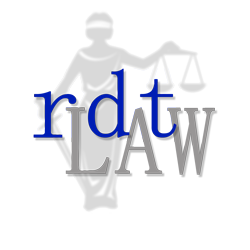My family recently had a final illness, and that experience has reinforced the importance of a well thought out plan. In less time than it takes to plan a vacation, you can ensure that you are taken care of and that your loved ones get their intended gifts.
ESTATE PLAN GOALS
An estate plan is rarely just a simple will. Instead, it usually consists of several documents instructing how you are to be cared for, and how your assets are to be distributed at your death. Your goals should include:
1. Taking care of yourself during your lifetime;
2. Ensuring that your estate benefits those whom you choose, in the manner you select; and
3. Minimizing costs and administrative burdens.
These goals are all important and require a unified approach to ensure that each is accomplished. As such, a typical plan often calls for several different types of documents such as wills, power of attorneys, and trusts. Your unique situation and goals will control what is necessary.
COSTS
You can expect to pay the following: (1) No initial consultation fee; (2) drafting fees that will vary with the complexity of your estate; and (3) an execution ceremony fee of $100. However, if you decide that a simple will is all that you need, your will only pay $250.
CAN’T I JUST USE ONLINE FORMS?
This is a common question. However, effective estate planning is not about forms—it’s about results. A one-size-fits-all form is not estate planning, it’s word processing! The use of forms could do more harm than good, as tax considerations and administration are not addressed. These can have profound effects on your final disposition, without even addressing your own care.
I highly recommend obtaining professional help on which of the many tools fit your situation, and how best to utilize those tools to ensure that you and your loved ones are cared for. It would be regretful for your wishes to not be carried out due to a hidden or technical defect.
Do not trust word processing, but rather trust professional counsel to design a plan, not a form. If your estate is simple, the cost is minimal. A little money can give you peace of mind that you are taken care of and that your loved ones—not the government or lawyers–get the lion share of your gifts.
PROCESS
The process starts with an in-depth interview where we discuss your estate, your health, and your testamentary wishes. We then devise a plan that protects you, sets out your gifts, and maximizes administrative efficiently. Finally, we properly execute the documents.
ESTATE BASICS
Below are some estate documents along with brief descriptions.
Will
A will is a document that directs the disposition of assets that are owned by you alone at the time of your death. These may include real estate, intangible property such as bank accounts and stocks, and tangible property, such as home furnishings. Assets not owned in your sole name do not normally pass under your will.
Trust
A trust is a private agreement by which you (the settlor) names another (the trustee) to hold property for the benefit of beneficiaries. The trust document appoints the trustee, which could be you initially, and sets forth the respective interests of the beneficiaries. A trustee must adhere to the provisions of the trust. Trust assets normally are not probated.
Power of Attorney
A power of attorney authorizes a designated person or persons (usually family members) to act on your behalf in making financial, and legal decisions. This document is generally used when you are incapacitated or can no longer make such decisions. The use of a power of attorney often avoids the need to have a court-appointed guardian.
Call today to setup a in-home consultation!
